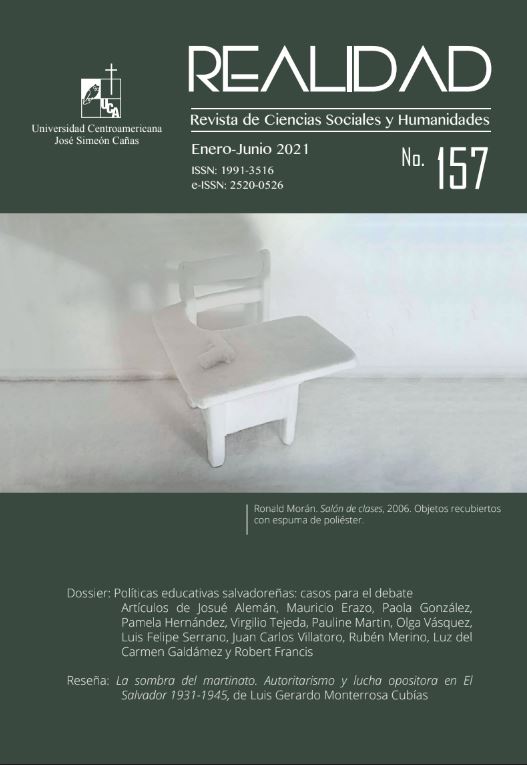Abstract
Family involvement in education is considered beneficial, but not all participation improves children´s learning (Gatt & Petreñas, 2012); neither does education policy in El Salvador clearly define expected family participation in schools, much less for difficult contexts of scarce resources, low economic development and insecurity. In the absence of a clear model for family participation in education, the relationship is defined by families’ economic and social limitations and barriers that schools themselves impose. This essay, based on a qualitative case study in two Salvadoran public schools with in-depth interviews, proposes that an adequate model for family participation in school should define separate and shared responsibilities for families and schools, according to each part’s possibilities and needs. In this way, it is possible to respond to the difficulties suffered by families, as well as to the resistance that schools have.
Realidad: Revista de Ciencias Sociales y Humanidades No. 157, 2021: 117-148.

This work is licensed under a Creative Commons Attribution-NonCommercial 4.0 International License.
Copyright (c) 2021 Pauline Martin





